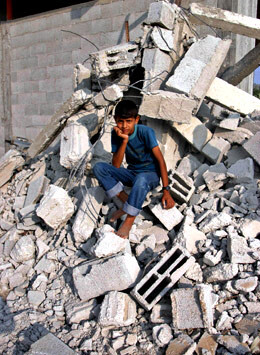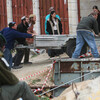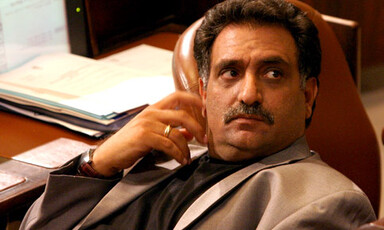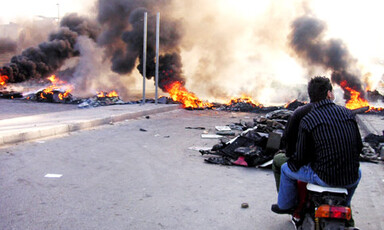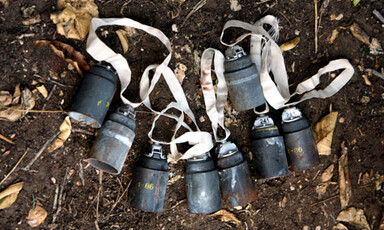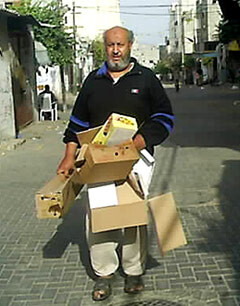
A cheerless Labor Day in Gaza
Gaza City, Palestine 1 May 2007
Forty-eight-year-old Riyad Hammad from the Maghazi Refugee Camp in central Gaza woke up on Friday morning whilst his wife sat before a wood-burning stove. He headed for a nearby store, not to buy cookies, or anything else, but rather to bring some used papers and pieces of carton outside the store’s front door to his waiting wife. Since being cut off of work following the outbreak of the intifada in 2000 and the imposition of Israeli closures, Riyad has been collecting torn-apart carton packing material and used papers in order to save a few shekels due his inability to afford gas and electricity. Read more about A cheerless Labor Day in Gaza
